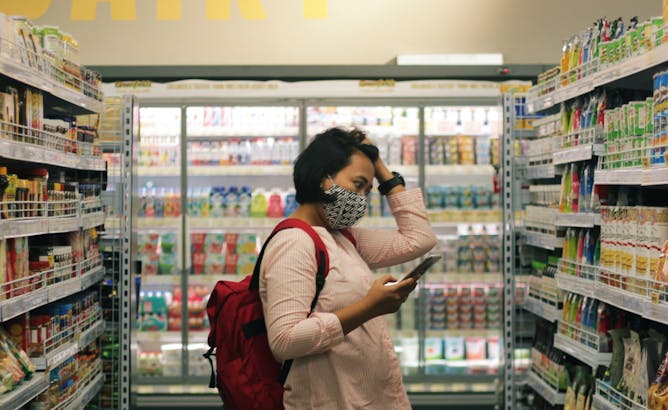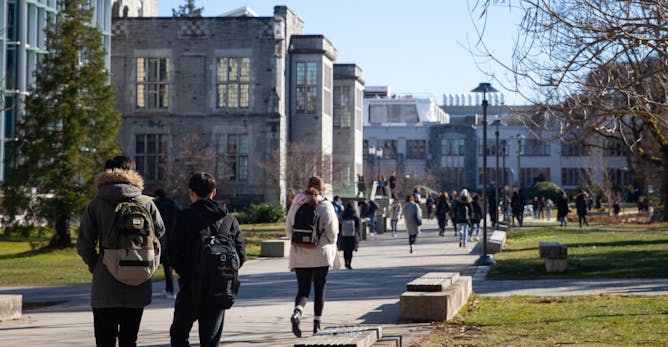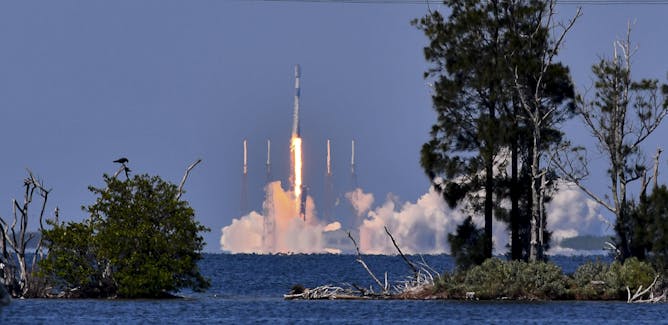|
The federal government has unveiled its budget for 2023. The budget promises more funding for health and dental care, affordability and clean energy. The government has promised to address affordability through a one-time grocery rebate that will provide money directly to low-income Canadians. There are also plans to invest more in clean energy and the Canada Infrastructure Bank.
While these are meaningful steps, experts say more needs to be done to address long-standing concerns.
Today, in The Conversation Canada, Valerie Tarasuk and Tim Li from the University of Toronto and Kerry Black from the University of Calgary provide their analysis of the federal budget. Tarasuk and Li outline the benefits and limitations of the grocery rebate, and what the government needs to do to address food insecurity in the long term. While Black discusses the budget’s infrastructure spending and why it’s proven
challenging to bridge Canada’s infrastructure gap.
Also today:
|

The high cost of groceries is exacerbating food insecurity in Canada, but the federal government’s new ‘grocery rebate’ doesn’t go far enough to help.
(Unsplash/Vicky Mohamad)
Valerie Tarasuk, University of Toronto; Tim Li, University of Toronto
Food insecurity is a problem of income inadequacy. The 2023 federal budget’s “grocery rebate” has the right idea, but falls short.
|

The budget is focused on building communities through infrastructure, housing, transit and connectivity.
THE CANADIAN PRESS/Adrian Wyld
Kerry Black, University of Calgary
The 2023 federal budget provides funding for critical infrastructure and clean energy. But long-term planning is needed to fix chronic problems.
|

International students are a major source of cheap labour for Canada, income for landlords and revenue for post-secondary institutions.
(Shutterstock)
Tania Das Gupta, York University, Canada; Yvonne Su, York University, Canada
Recent reports that 700 international students and graduates could be deported from Canada reveal how the immigration system leaves them open to exploitation.
|

Nordstrom Inc. is closing all of its Canadian stores and cutting 2,500 jobs as it winds down operations in the country.
THE CANADIAN PRESS/Nathan Denette
David Soberman, University of Toronto
The perspective that U.S. retailers are somehow more prone to failure than Canadian retail chains is unconvincing, but the Canadian retail landscape is challenging for newcomers.
|

A SpaceX Falcon 9 rocket carrying Starlink satellites launches on Aug. 19, 2022. The Falcon 9 is a reusable rocket and its re-entry is controlled after launch, reducing debris.
(Malcolm Denemark/Florida Today via AP)
Michael Byers, University of British Columbia; Aaron Boley, University of British Columbia
Rockets used to launch satellites fall back to Earth, and as their number grows, the risk faced by people living on the ground — or flying in airplanes — increases.
|

Pour tirer parti des avantages des nouvelles technologies agricoles, on doit développer des systèmes alimentaires dans lesquels les déchets d’une étape deviennent des intrants dans la suivante.
(Shutterstock)
Rene Van Acker, University of Guelph; Evan Fraser, University of Guelph; Lenore Newman, University of The Fraser Valley
Comment peut-on nourrir de manière nutritive une population croissante, faire face au changement climatique et ne pas détruire les écosystèmes dont nous dépendons tous pour vivre ?
|
Arts
|
-
Ilana Webster-Kogen, SOAS, University of London
Her exquisite piano compositions drew fans to the Jerusalem monastery where she lived after fleeing Ethiopia.
|
|
Culture + Society
|
-
Evan Smith, Flinders University
There is a long history of tossing food at politicians and other controversial figures as a deliciously defiant symbol of objection to their politics and presence in public spaces.
|
|
Politics
|
-
Joseph Yaw Asomah, University of Manitoba
Ghana’s flawed democracy has failed to establish mechanisms to effectively control corruption.
|
|